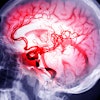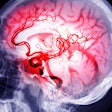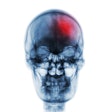Researchers at the Augusta University Dental College of Georgia have received a $2.8 million grant to study the link between a periodontal bacterium and Alzheimer's disease, according to news from the university.
Porphyromonas gingivalis (P. gingivalis) may increase the risk of Alzheimer's in patients with gum disease, Ranya El Sayed, PhD, an assistant professor of periodontics and lead researcher, said in the story dated March 13.
"A protein from P. gingivalis, a known periodontal pathogen, was detected in the brains of deceased Alzheimer's patients," El Sayed said in the story.
Infections caused by P. gingivalis in the gums may trigger the release of small vesicles called [RE1] exosomes. These vesicles travel through the gums, promoting inflammation and bone loss before entering the bloodstream.
Their small size allows them to cross the blood-brain barrier and reach brain tissue. Once inside, they are absorbed by the brain's immune cells, triggering inflammation and eventually leading to neuron degeneration, according to the story.
To investigate this process, researchers will use mouse models, inducing periodontitis in one group and transferring vesicles from infected tissue to another group. They will then monitor the mice for behavioral signs of Alzheimer's.
With funding from the U.S. National Institute on Aging, the team aims to uncover the mechanisms behind this process, helping patients take preventive measures, according to the story.
"When we understand how these processes intersect, it will be easier to find a cure," Mahmoud Elashiry, PhD, an assistant professor of periodontics and co-investigator of the study, said in the story.




















